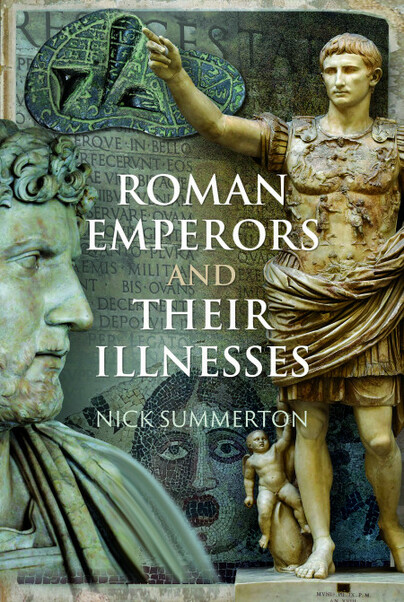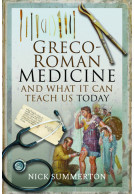Google Books previews are unavailable because you have chosen to turn off third party cookies for enhanced content. Visit our cookies page to review your cookie settings.
Roman Emperors and their Illnesses (Hardback)
By
Nick Summerton
Imprint: Pen & Sword History
Pages: 224
Illustrations: 150 colour integrated
ISBN: 9781399094177
Published: 30th January 2026
Imprint: Pen & Sword History
Pages: 224
Illustrations: 150 colour integrated
ISBN: 9781399094177
Published: 30th January 2026
You'll be £20.00 closer to your next £10.00 credit when you purchase Roman Emperors and their Illnesses. What's this?
+£4.99 UK Delivery or free UK delivery if order is over £40
(click here for international delivery rates)
Need a currency converter? Check XE.com for live rates
(click here for international delivery rates)
Need a currency converter? Check XE.com for live rates
Medical history has been particularly unkind to some historical figures. The, so-called, 'mad emperors' Caligula, Tiberius and Nero cannot question their various psychiatric diagnoses or request a second opinion. Neither can Maximinus Thrax, Nero or Caligula demand further testing to refute or confirm the suggestions that they all suffered from a type of hormonal disorder.
By undertaking a detailed evaluation of the ancient sources relating to Augustus, he has been re-characterised as an individual surviving to the age of 75 with a long-term lung condition. Perhaps some of his enigmatic behaviours and actions represented a reaction to developing a chronic disease at a young age?
Claudius suffered from a movement disorder that affected his mobility and speech. Although highly intelligent, the response of the Imperial family to his disability was to keep him in the shadows, out of politics and public affairs. He became of figure of fun, ridiculed within Roman high society and subjected to insults and cruel tricks. The indignities and hardships he experienced in his youth probably had an impact on his character, health and behaviour. Also, it seems much more likely that he died due to a stroke or a heart attack rather than from consuming poisoned mushrooms!
Marcus Aurelius might not have been as physically unwell as has been suggested by both modern and ancient historians. Despite suffering from sinusitis, gastroenteritis plus various aches and pains, there is no evidence that he had any longer-term health problems.
Diagnosing the illnesses of Roman emperors might not be viewed as an appropriate line of enquiry given the enormous gulf that separates ancient and modern medicine. However, although there are certainly some major challenges in using present medical knowledge to identify past diseases, there are potential opportunities too in augmenting – or even correcting – the historical record.
There are no reviews for this book. Register or Login now and you can be the first to post a review!
About Nick Summerton
Dr Nicholas Summerton qualified as a medical doctor in 1984, and has worked in hospital medicine, general practice, public health and clinical research. He has written three books on diagnosis and screening plus a short booklet entitled Medicine and Health Care in Roman Britain. He also has longstanding interests in the Roman world and a specific focus on Ancient Medicine.
More titles by Nick Summerton
Other titles in Pen & Sword History...















